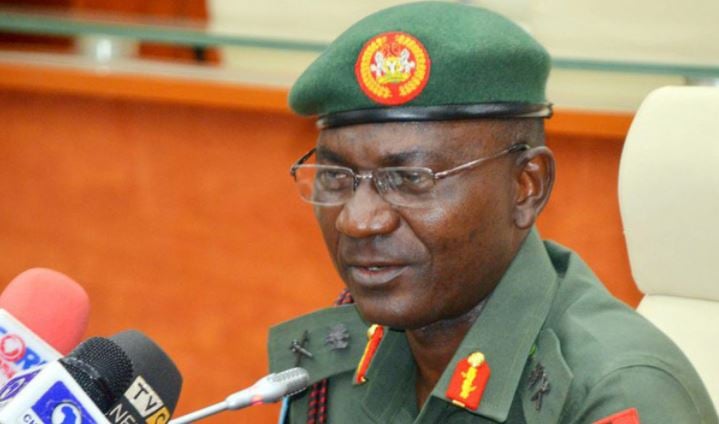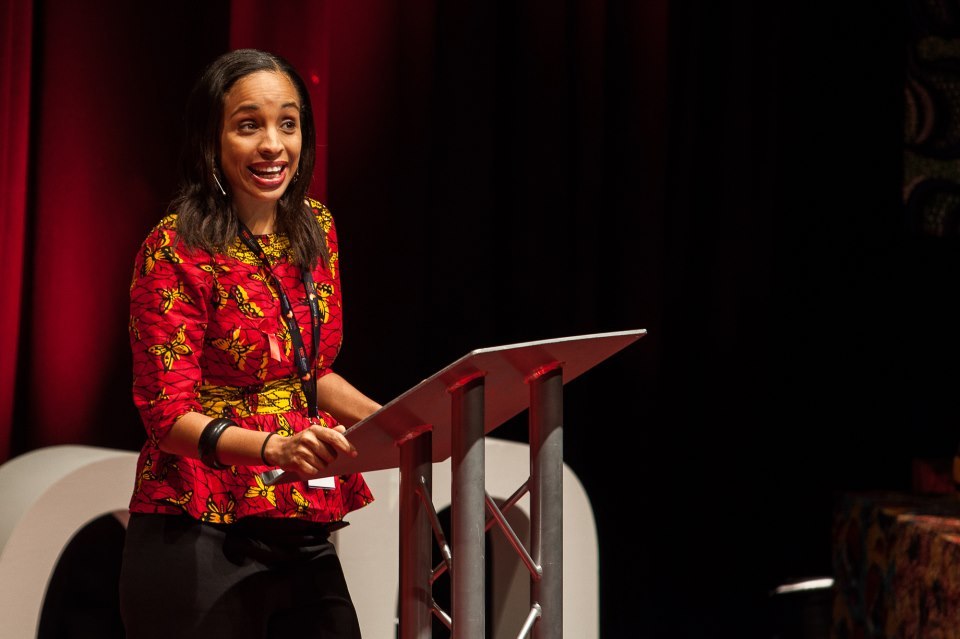John Enenche, coordinator of defence media operations, says some residents of Borno state sabotage the efforts of the military by providing information on its movement and activities to Boko Haram.
Enenche said this on Monday, while answering questions on the killing of 45 farmers at Zabarmari in Jere local government area of Borno state by the insurgents, when he featured on Sunrise Daily, a programme on Channels Television.
He said information gathered from the attack showed that some of the insurgents were already cohabiting with the villagers before the attack.
Asked how the military had no prior intelligence on the attack, Enenche said the army needs information from locals to aid its operation.
Advertisement
“That has been our worry. It’s a concern to us. You need a guide, you need information. Will they tell us? That’s a question that we have to ask. Yes, sometimes. And most times, no. And that was one of the issues we have been ensuring to overcome, with civil-military cooperation activities, reaching out to them, even sending people by proxy to talk to them,” Enenche said.
“Those are the things that have been one of the banes of the final success in the whole of this operation. Our patrols will pass through a route, in a village. By the time you are going, some people are looking at you. When you are coming back, the next thing is that you meet an IED planted on the road. And people saw them, they won’t tell you. So that’s the area I think we are all working together as stakeholders.
“And it is not possible to force information out of people. It’s not possible, just like they say you force a horse to the river, but not to drink water. So all we are trying to do is to build up their confidence in the system and encourage them that look, this is not good for you. Now they do not expect that this will happen, even those ones that they deceived, that they are preaching to them.”
Advertisement
On the actual number of casualties from the attack, Enenche said contrary to the UN’s statement that over 100 people were killed, the military has so far identified 43 corpses.
According to him, the field commandants “gave me a synopsis of what happened. When the governor was to go and after they had recovered the dead, the troops had to move in there and they counted 43.
“Probably we may count up to the figure he (Kallon) gave in the future but as it is now, what we have counted with the locals is still 43 and we are hoping that we don’t get beyond that.
“This is the real situation. I did not sleep, we had to follow it because this is very relevant coming from the United Nations.”
Advertisement
Speaking on how to enhance the military’s performance and the role the service chiefs play in that regard, Enenche said though the military is in need of new ideas, it is better they are from lower-ranking officers.
“Of course, we need fresh ideas. Like I was at the graduation ceremony of army war college on Friday last week. Incidentally, I was the commandant there before and what we do in from time we now play; there is what we call exercise star ride, we have the similar one at the national defence college even at the armed forces command and staff college, we now play real lifetime exercise to the participants and students. They see where there are areas that they could improve upon and they bring out their reports. Those are fresh ideas because it is dynamic,” he said.
“So, we get input from the war colleges and then the NDC and also we have planning teams and those are the people that come up with these ideas. I can assure you that the things we do progressively are never in the past. So fresh ideas, that is how we generate them from the various components that I have mentioned.
“My training is bottom-up approach. That is the intercontinental system. It comes from the bottom-up then you will now look at it at the top. I have been a commander and I have been a commandant so that is the way it works. You don’t look down on your subordinates and junior commandants. Those are the people on the field. You’ll get it better with the bottom-up approach. That is better from my experience because if you now go and bear on them, that means you are lording it over your subordinates. They bring up their ideas then you now look at it.”
Advertisement







